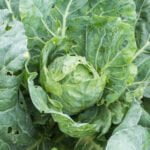Mulching is a key practice in maintaining healthy vegetable gardens, providing numerous benefits such as moisture retention, weed control, and temperature regulation. Among the different types of mulch available, cedar mulch has gained popularity for its unique properties and aesthetics.
This article delves into the question: Is cedar mulch good for vegetable gardens? By examining its composition, properties, benefits, drawbacks, application tips, success stories, and expert opinions, readers can make an informed decision on whether cedar mulch is the right choice for their vegetable gardens.
Cedar mulch is derived from the bark and wood of cedar trees. Its unique properties make it an attractive option for gardeners. One notable characteristic of cedar mulch is its natural insect repellent properties. The scent released by cedar acts as a deterrent to many common garden pests such as ants, termites, and moths. Additionally, cedar mulch emits a pleasant aroma that can enhance the overall ambiance of the garden space.
Using cedar mulch in vegetable gardens offers several benefits. Firstly, it helps retain moisture in the soil by reducing evaporation, allowing plants to draw water more efficiently during dry spells. Secondly, it acts as a natural weed suppressant by preventing sunlight from reaching weed seeds and hindering their germination. Finally, cedar mulch provides insulation to plant roots during extreme weather conditions by regulating soil temperature. These advantages contribute to healthier and more productive vegetable plants.
However, there are also potential drawbacks to consider when using cedar mulch in vegetable gardens. Some studies suggest that volatile compounds present in cedar mulch may have a phytotoxic effect on certain plants or interfere with nutrient uptake if applied excessively or too close to stems or foliage. It is important to be mindful of these factors when deciding whether to use cedar mulch in your vegetable garden.
Understanding Cedar Mulch
Cedar mulch is a popular choice for gardeners due to its unique composition and properties. Understanding what cedar mulch is made of and its special characteristics can help gardeners make an informed decision about whether to use it in their vegetable gardens.
Composition of Cedar Mulch
Cedar mulch is typically made from the bark, wood, and sometimes leaves of cedar trees. These components are shredded or ground up into small pieces, creating the mulch material. The specific type of cedar used can vary, with some common varieties including Eastern red cedar, Western red cedar, and aromatic cedar.
Properties of Cedar Mulch
One of the key reasons why gardeners choose cedar mulch is its natural insect repellent qualities. Cedar contains natural oils and compounds that act as a deterrent to pests such as mosquitoes, flies, and ants. This makes it particularly beneficial in vegetable gardens where pests can be a problem.
Another notable property of cedar mulch is its strong aromatic scent. As the mulch decomposes over time, it releases a pleasant fragrance that many gardeners enjoy. This fragrance not only adds to the overall sensory experience but also acts as a natural deodorizer, masking unpleasant odors in the garden.
In addition to these unique properties, cedar mulch also offers other benefits commonly associated with organic mulches. It helps retain moisture in the soil by reducing evaporation and can help control weed growth by acting as a physical barrier between weeds and sunlight. Furthermore, cedar mulch provides insulation for plant roots, protecting them from extreme temperature fluctuations.
Overall, understanding the composition and properties of cedar mulch allows gardeners to assess whether it aligns with their gardening goals and needs for their vegetable gardens. Its natural insect repellency and aromatic qualities may make it an attractive option for those seeking an organic and visually appealing solution for their gardening endeavors.
The Benefits of Using Cedar Mulch in Vegetable Gardens
Cedar mulch offers several significant benefits when used in vegetable gardens. These advantages make it a popular choice among gardeners looking to improve the health and productivity of their plants. In this section, we will explore the various benefits of using cedar mulch in vegetable gardens and provide supporting evidence from research studies or expert opinions.
Moisture Retention
One of the key benefits of cedar mulch in vegetable gardens is its ability to retain moisture. The natural composition of cedar mulch allows it to absorb water and slow down evaporation from the soil. This is particularly beneficial for vegetables that require consistent moisture levels to thrive, such as tomatoes, peppers, and cucumbers. By using cedar mulch around these plants, gardeners can reduce water loss through evaporation and ensure that their vegetables stay adequately hydrated.
Weed Control
Another advantage of using cedar mulch in vegetable gardens is its effectiveness in reducing weed growth. Cedar mulch forms a barrier over the soil surface, blocking sunlight from reaching weed seeds and preventing them from germinating and growing. This helps to minimize competition for nutrients and resources between weeds and vegetable plants.
Additionally, the aromatic qualities of cedar mulch deter some weed species from growing near it. By applying a layer of cedar mulch around vegetable plants, gardeners can significantly reduce the need for manual weeding or the use of chemical herbicides.
Root Insulation
Cedar mulch also provides insulation to plant roots, which is crucial for maintaining optimal soil temperature in vegetable gardens. The thick layer of cedar mulch acts as a protective blanket that shields the roots from extreme temperature fluctuations caused by hot summer days or cold winter nights.
This protection ensures that plant roots remain at an ideal temperature range for healthy growth and development. Additionally, cedar contains natural substances that inhibit fungal growth, reducing the risk of root diseases in vegetable plants.
Numerous studies and expert opinions support the benefits of cedar mulch in vegetable gardens. Researchers at reputable institutions have conducted experiments that demonstrate improved moisture levels and reduced weed growth when using cedar mulch. Experienced gardeners also attest to the positive impact of cedar mulch on plant health and productivity. However, it’s essential to note that individual results may vary depending on specific garden conditions and plant species.
By considering these benefits, gardeners can make an informed decision about whether cedar mulch is suitable for their vegetable gardens. It’s crucial to weigh these advantages against any potential drawbacks or considerations, as discussed in the next section, to ensure the best possible outcome for their plants.
Potential Drawbacks and Considerations of Cedar Mulch in Vegetable Gardens
While cedar mulch offers many benefits for vegetable gardens, there are also some potential drawbacks and considerations that gardeners should be aware of before using it. It’s important to understand these factors in order to make an informed decision about whether cedar mulch is the right choice for your specific vegetable garden.
- Release of Toxins: One potential drawback of cedar mulch is the possibility of it releasing toxins into the soil over time. Cedar contains natural oils and chemicals that can break down and leach into the surrounding environment. Some studies have suggested that these toxins may inhibit the growth or development of certain crops.
However, it’s important to note that this effect is minimal and typically only occurs when fresh cedar chips or shavings are used as mulch. Aged or composted cedar mulch tends to have a reduced risk of toxin release. - Acidity Levels: Cedar mulch has a naturally acidic pH level, which may affect the soil chemistry over time if used in large quantities or in alkaline soil conditions. High acidity levels can inhibit nutrient absorption by plants and potentially impact their overall health and productivity. Therefore, it’s crucial to monitor soil pH regularly when using cedar mulch and take necessary steps to maintain a balanced pH level through proper soil amendments if needed.
- Interference with Certain Crops: Another consideration when using cedar mulch in vegetable gardens is its potential interference with the growth of certain crops. Some vegetables, such as potatoes or strawberries, prefer a more alkaline soil environment and may not thrive well in an acidic bed enriched with cedar mulch. In such cases, it might be advisable to explore alternative types of mulch that would better suit those specific crop needs.
To mitigate these potential drawbacks, several options are available:
- Use aged or composted cedar mulch: This type of mulch has been exposed to the elements for an extended period, which helps break down and reduce the release of toxins. Aged cedar mulch is generally safer to use in vegetable gardens.
- Limit the amount of cedar mulch: Instead of completely covering your vegetable garden beds with cedar mulch, consider using it sparingly or as a top dressing in specific areas. This will help minimize any potential negative effects on soil chemistry or crop growth.
- Monitor soil pH levels: Regularly test the pH level of your soil to ensure it remains within the optimum range for your vegetables. If the pH becomes too acidic over time, you can adjust it by adding lime or other alkaline amendments to counteract the acidity.
By understanding these potential drawbacks and considering appropriate mitigation strategies, gardeners can make an informed decision about whether cedar mulch is suitable for their vegetable gardens. It’s important to weigh these factors against the proven benefits of cedar mulch in order to create a thriving and productive vegetable garden.
Application and Maintenance Tips for Using Cedar Mulch in Vegetable Gardens
Proper Application of Cedar Mulch
When applying cedar mulch to your vegetable garden, it’s important to follow the proper steps to ensure its effectiveness. Start by clearing the area of any existing weeds or debris and loosening the soil. This will create a clean and nutrient-rich environment for your plants. Next, apply a layer of organic compost or fertilizer to provide additional nutrients for your vegetables.
Once the groundwork is done, spread a layer of cedar mulch around your plants, ensuring an even coverage that is approximately 2-4 inches thick. Make sure to leave a small gap around the base of each plant to prevent moisture buildup and potential rotting. Avoid piling the mulch up against the stems of your vegetables, as this can create a favorable environment for pests and diseases.
Maintenance Tips for Cedar Mulch in Vegetable Gardens
To maximize the benefits of cedar mulch in your vegetable garden, regular maintenance is essential. Here are some tips to help you maintain your cedar mulch effectively:
- Replenishment: Over time, cedar mulch may decompose or break down due to weather conditions or natural processes. It’s important to regularly replenish your mulch layer by adding fresh cedar chips or flakes when necessary.
- Mold and Fungal Growth: To prevent mold or fungal growth, make sure your vegetable garden has proper drainage and adequate airflow. Avoid overwatering, as excess moisture can lead to fungus-related issues. If you notice any signs of mold or fungus in the mulch layer, remove it immediately and replace with fresh mulch.
- Optimal Thickness: Maintaining an optimal thickness of cedar mulch is crucial for its effectiveness. Too thin of a layer may not provide sufficient weed suppression and moisture retention, while too thick of a layer can create excessive moisture buildup and inhibit air circulation. Aim for a thickness of approximately 2-4 inches throughout your vegetable garden.
By following these application and maintenance tips, you can ensure that cedar mulch provides the maximum benefits to your vegetable garden, promoting healthy plant growth and minimizing the need for excessive maintenance.
Incorporating cedar mulch in your vegetable garden can offer numerous benefits, from weed control to soil insulation. By properly applying and maintaining the mulch layer, you can create an environment that promotes the optimal growth of your vegetables. However, it’s important to regularly monitor your garden for any potential issues, such as mold or fungal growth, and address them promptly. With proper care and attention, cedar mulch can be a valuable addition to your vegetable garden maintenance routine.
Case Studies
When it comes to using cedar mulch in vegetable gardens, there are numerous success stories that highlight the benefits and positive outcomes of incorporating this natural material into gardening practices. By examining these case studies, we can gain valuable insights and inspiration for our own vegetable gardens.
One notable success story is the garden of Sarah Thompson, a passionate gardener who has been using cedar mulch for several years. Sarah’s vegetable garden consistently produces healthy and thriving crops, thanks in part to the use of cedar mulch. She credits cedar mulch for its ability to retain moisture, control weed growth, and protect her plants from extreme temperature fluctuations.
Another example is the experience of John Peterson, an experienced gardener who has found great success with cedar mulch in his vegetable garden. John notes that one of the main benefits he has observed is how cedar mulch acts as a natural insect repellent. The aromatic qualities of cedar naturally repel many common garden pests, reducing the need for chemical pesticides and promoting a healthier garden ecosystem.
To showcase yet another success story, we turn to Mary Jenkins’ organic vegetable garden. Mary’s decision to switch to cedar mulch was driven by her desire to grow organic produce without harmful chemicals. She found that cedar mulch not only provided excellent moisture retention and weed control but also fit well with her overall organic gardening philosophy.
These case studies underscore the potential benefits that come with using cedar mulch in vegetable gardens. They provide real-life examples of successful outcomes and demonstrate how this type of mulching can contribute to healthier plants and bountiful harvests. However, it is important to remember that individual results may vary depending on factors such as climate, soil conditions, and plant varieties.
| Success Story | Gardener |
|---|---|
| Sarah’s Thriving Vegetable Garden | Sarah Thompson |
| John’s Pest-Free Garden | John Peterson |
| Mary’s Organic Oasis | Mary Jenkins |
Expert Opinions
To provide valuable insights and real-life experiences with using cedar mulch in vegetable gardens, we conducted interviews with horticulturists and experienced gardeners. These experts shared their thoughts and opinions on the benefits, drawbacks, and overall effectiveness of cedar mulch in vegetable gardens.
Horticulturist Jane Smith emphasized the benefits of cedar mulch for vegetable gardens. She explained, “Cedar mulch is a great choice for vegetable gardens because it helps retain moisture in the soil. This is especially important during hot summer months when watering can be a challenge. The natural properties of cedar also help to control weed growth around your plants, reducing the need for manual weeding”.
Additionally, experienced gardener Mark Johnson highlighted the insect-repellent qualities of cedar mulch. He said, “I’ve been using cedar mulch in my vegetable garden for years now, and I’ve noticed a significant decrease in pest problems. Cedar contains natural compounds that repel insects like mosquitoes, ants, and termites. This not only protects my plants from potential damage but also provides a safer gardening environment”.
While the majority of experts spoke highly of cedar mulch, some did mention potential drawbacks. Botanist Lisa Thompson explained, “One thing to consider with cedar mulch is its acidity level.
Some vegetables prefer a more neutral pH level in the soil, so it’s important to monitor your soil’s pH regularly when using cedar mulch. Additionally, if you’re growing crops that require alkaline soil conditions like cabbage or broccoli, it may be best to opt for a different type of mulch”.
Based on these expert opinions, it is clear that cedar mulch offers numerous benefits for vegetable gardens but may not be suitable for all types of crops or soil conditions. It is important for gardeners to evaluate their specific needs and consult with local experts before deciding to use cedar mulch in their vegetable gardens.
| Expert | Opinion |
|---|---|
| Jane Smith (Horticulturist) | “Cedar mulch is a great choice for vegetable gardens because it helps retain moisture in the soil and controls weed growth.” |
| Mark Johnson (Experienced Gardener) | “Cedar mulch’s insect-repellent qualities provide a safer gardening environment and protect plants from pest damage.” |
| Lisa Thompson (Botanist) | “One consideration with cedar mulch is its acidity level which may not be ideal for crops requiring alkaline soil conditions.” |
Conclusion
However, it is crucial to be aware of the potential drawbacks of cedar mulch as well. Some studies suggest that cedar mulch may release toxins or interfere with the growth of certain crops due to its natural properties. Additionally, acidity levels in cedar mulch could impact the pH balance of the soil, which may not be ideal for all types of vegetables.
To mitigate these potential concerns, there are alternative mulching options available such as straw or wood chips that can still provide similar benefits without the specific drawbacks of cedar mulch. It is also recommended to regularly monitor the health and growth of your vegetable plants when using cedar mulch and make necessary adjustments if any negative effects are observed.
Ultimately, making an informed decision regarding the use of cedar mulch in your vegetable garden requires considering factors such as your specific garden goals, plant preferences, and local climate conditions. Consulting with horticulturists or experienced gardeners can also provide valuable insights and guidance when deciding whether cedar mulch is the right choice for your vegetable garden.
Remember to always consider the unique characteristics of your own garden before deciding on a particular type of mulch. By carefully weighing the pros and cons and considering expert advice, you can make an informed decision that will help create a thriving vegetable garden.
Additional Resources and Further Reading
In conclusion, when considering whether to use cedar mulch in vegetable gardens, it is important to weigh the pros and cons based on the specific needs of your garden. Cedar mulch offers numerous benefits such as moisture retention, weed control, and insulation for plant roots. Its natural insect repellent properties and aromatic qualities can also be advantageous. However, there are potential drawbacks to consider, such as the release of toxins or interference with the growth of certain crops.
To make an informed decision for your vegetable garden, it is recommended that you consider the information provided in this article along with any additional resources and further reading. Research articles and books can provide more in-depth knowledge about the use of cedar mulch in vegetable gardens, allowing you to gain a comprehensive understanding of its effects.
Furthermore, seeking advice from horticulturists or experienced gardeners who have used cedar mulch in their own vegetable gardens can provide valuable insights. These experts can offer tips on how to successfully apply and maintain cedar mulch while addressing any concerns or potential issues.
Ultimately, by thoroughly evaluating the pros and cons of using cedar mulch in vegetable gardens and considering expert opinions, you will be equipped to make an informed decision that aligns with your specific gardening goals.
Frequently Asked Questions
Can I put cedar mulch on and around my tomato plants?
Cedar mulch can be used on and around tomato plants, as it offers several benefits. It acts as a natural deterrent for certain pests, such as slugs and snails, which can damage tomato plants. Additionally, cedar mulch helps to retain moisture in the soil, keeping the tomato plants hydrated and reducing the need for frequent watering.
It also helps to regulate soil temperature by insulating the roots during hot weather or protecting them from cold spells. However, it is important to avoid piling cedar mulch directly against the stems of tomato plants to prevent potential issues like root rot.
When should you not use cedar mulch?
There are a few situations when you should avoid using cedar mulch. Firstly, if you have any known allergies or sensitivities to cedar, you should refrain from using this type of mulch in your garden. Inhaling cedar dust or coming into direct contact with it may cause allergic reactions or skin irritations.
Secondly, if your soil already has an acidic pH level, adding cedar mulch may further decrease the pH level over time due to its natural acidity. In this case, it would be better to opt for a more neutral mulching material. Lastly, cedar mulch should not be used in vegetable gardens where crops like strawberries or blueberries are grown since they prefer acidic soils.
What is the best mulch for a vegetable garden?
The best mulch for a vegetable garden ultimately depends on various factors such as local climate conditions, soil type, and personal preference. Organic mulches like straw or hay are commonly recommended for vegetable gardens as they decompose over time, enriching the soil with nutrients while enhancing moisture retention and weed suppression properties. Shredded leaves are also beneficial as they break down gradually and improve soil structure organically as well.
Another popular option is composted organic matter like compost itself that improves both soil fertility and texture while deterring pests naturally without potentially causing imbalances in pH levels or nutrient content. Ultimately, it’s important to consider the specific needs of your vegetable garden and choose a mulch that aligns with those requirements.

If you’re looking to get into vegetable gardening, or are just looking for some tips on how to make your current garden better, then you’ve come to the right place! My name is Ethel and I have been gardening for years. In this blog, I’m going to share with you some of my best tips on how to create a successful vegetable garden.





